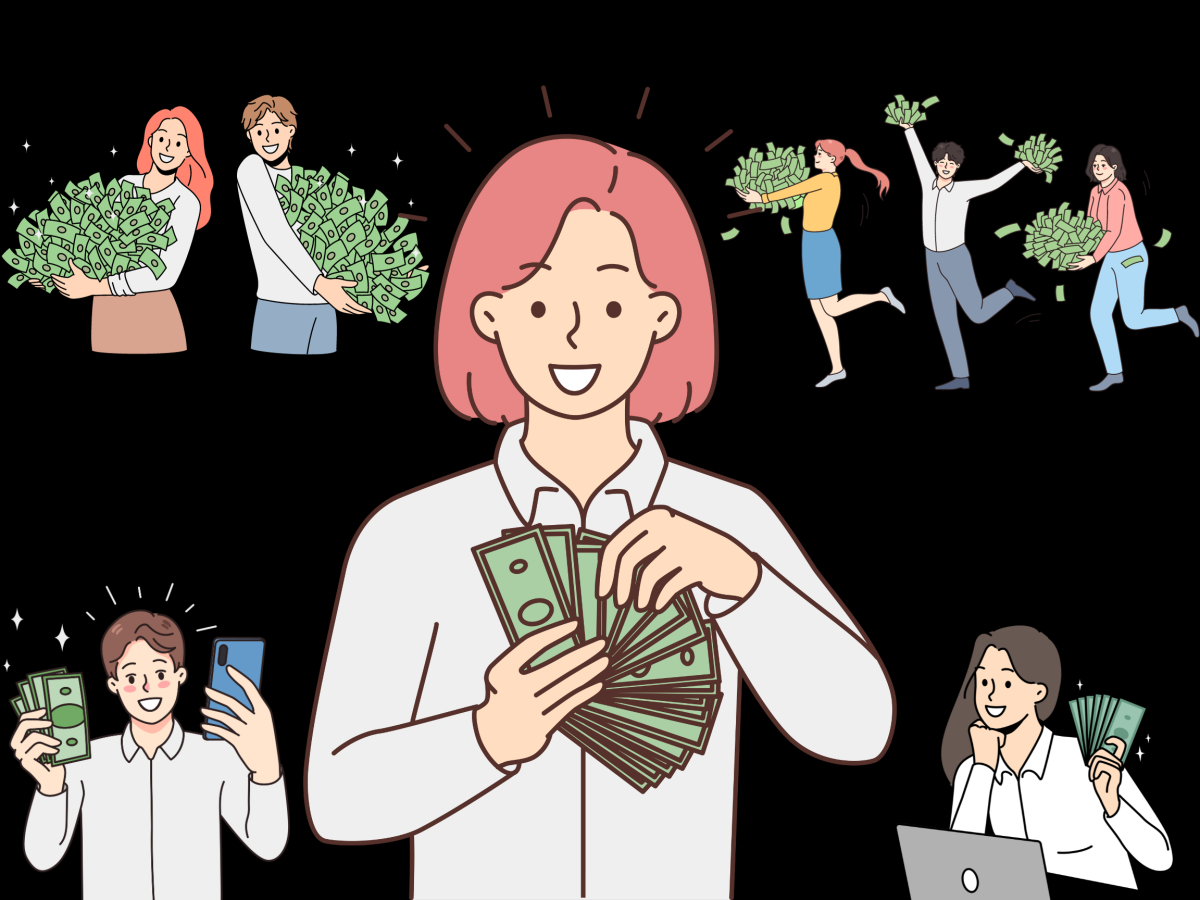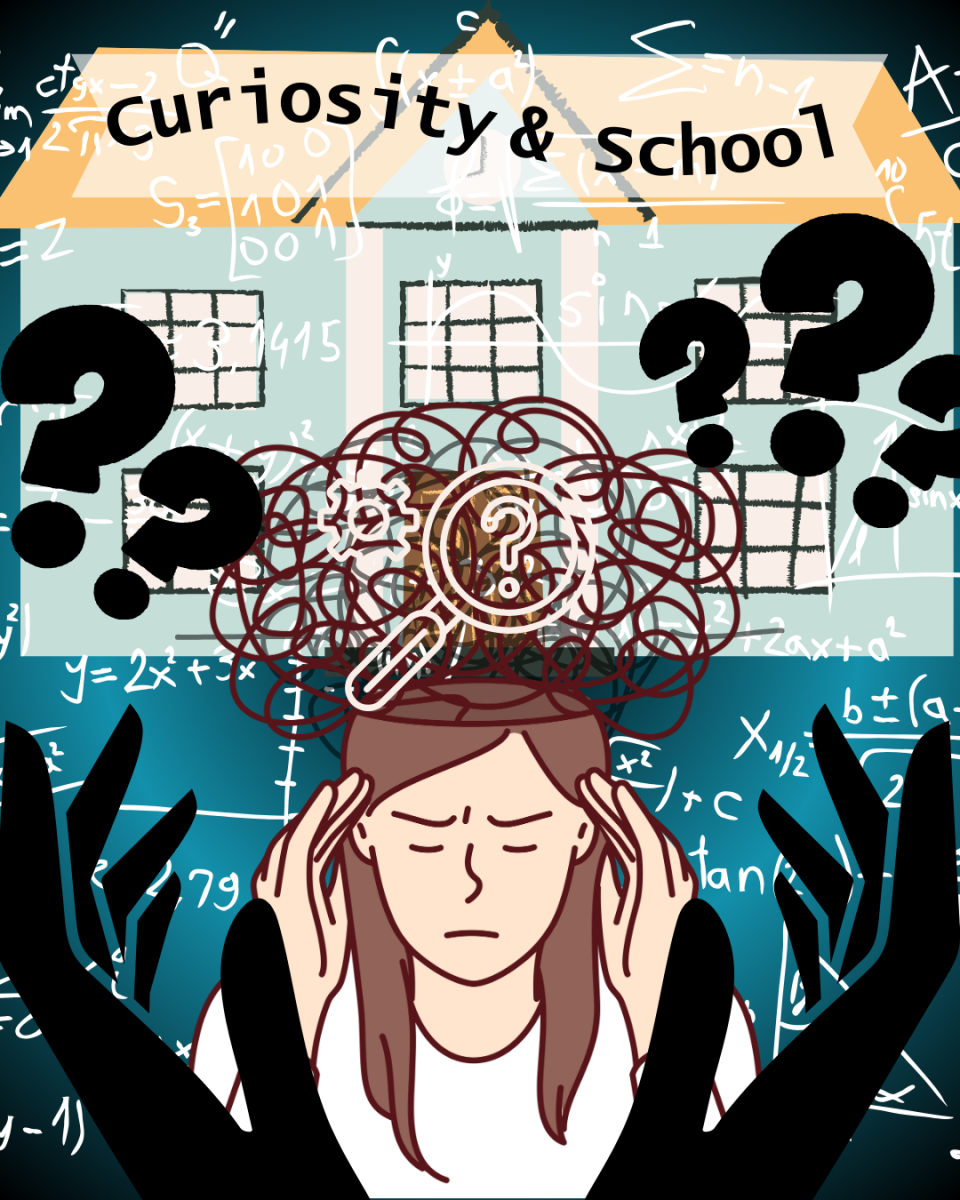“Money can’t buy happiness.” This is a commonly used saying that most of us are taught early on in our lives, but it’s wrong. As Gertrude Stein once said, “Whoever said money can’t buy happiness simply didn’t know where to shop.” Money can be used to buy many things that can bring us happiness.
One way money can be used to bring us happiness is by exposing oneself to new experiences.
An article written by Harry Enten, a Senior Data Reporter working for CNN, describes how he tried to find his own answer to the question, “Can money buy happiness?” To do this, he went trapezing, swinging from a short bar high above the ground. Before trying this, Enten used four sources to look deeper into the question.
The first source he used was his friend Clara. As stated in the article, Clara didn’t have a lot of money growing up. Asking her what her opinion was on the matter could have helped Enten understand how the lack of money growing up helps shape people’s perspectives of the correlation between money and happiness.
“Money cannot buy happiness, but money can solve a lot of our problems and troubles,” Clara said.
Afterwards Enten looked at a study conducted in 2010 that was led by Daniel Kahneman at Princeton university that suggested that money couldn’t make us happier after earning a yearly salary of $75,000, and another study conducted by Matthew Killingsworth that revealed that happiness can always increase with increased salary.
“Each dollar buys a little bit less happiness.” Killingsworth said. An example to showcase this would be if two people with different incomes found $100, they would value it differently because it’s a different portion of their salary. To put it simply, $100 brings more happiness to a person with a lower income than someone with a higher income.
Enten conducted an interview with psychology professor, Elizabeth Dunn, who said that instead of buying objects, we should be buying experiences to obtain the most happiness out of our money. According to Dunne’s research, buying experiences can help us connect to the people we care about and to our sense of self.
Hearing this, Enten decided to try trapezing. After buying the experience he stated that it got him to a higher happiness level.
“I didn’t just buy an experience; I bought a story I could share over and over. I think the trapeze experience has gotten better the further I am from it. There’s a real sense of nostalgia, even though it was only a few weeks ago.” Enten said.
Buying experiences and exposing oneself to new things, much like Enten used his money to buy a trapezing experience, can bring us happiness and connect to others through said experiences. Buying experiences gives us fond memories that we can look back on and experience our happiness again.
Now let’s look more into the studies conducted by Kahneman and Killingsworth. Both of their studies display that the growth of people’s income and happiness is related, but what’s the difference between the two? The study conducted by Kahneman found that although happiness levels and salary growth are related and grow together, happiness levels don’t increase and plateau after a certain salary amount. Killingsworth’ study shows that although happiness grows with increased salary, it does slow down.
In order to come to an agreement on the matter, Killingsworth and Kahneman came together to conduct another study. In the study they found that unhappy people’s happiness tends to have little to no growth with an increased salary, while the happiness of happy people grows continuously with increased salary.
“In the simplest terms, this suggests that for most people larger incomes are associated with greater happiness. The exception is people who are financially well-off but unhappy. For instance, if you’re rich and miserable, more money won’t help. For everyone else, more money was associated with higher happiness to somewhat varying degrees,” Killingsworth said.
So what does this bring to the table? These studies help show that money can, in fact, buy and increase happiness but only if we feel fulfilled and happy to begin with.
It’s hard to think about buying happiness when we don’t know what it is. To better understand what it is, we need to look at what brings people happiness. To do so, I looked at an article about the four levels of happiness: Leatus, Felix, Beatitudo and Sublime Beatitudo.
Laetus, the first level of happiness, comes from material objects and brings intense feelings of happiness. Focusing only on this level of happiness doesn’t allow us to feel fulfilled and can make life seem meaningless.
The second level of happiness, Felix, is based on being the best or better than others. Because nobody can be good at everything, this level of happiness is unstable and can bring jealousy and self-absorption. These first two levels of happiness only bring short lived happiness that doesn’t last long.
Beatitudo, the third level of happiness, comes from making others happy and sharing their happiness. Because of this, the third level of happiness tends to make people feel meaningful and give them a sense of connection and unity with others.
Sublime Beatitudo is the fourth and last level of happiness. Sublime Beatitudo is a mix of Laetus, Felix, Beatitudo, and something more and can bring total and perfect happiness. This level of happiness can be brought by feeling connected to the universe beyond the typical level.
Because Laetus comes from material objects, this level of happiness can be easily bought by owning a car, house, clothes and items that can be found in stores. The second level of happiness comes from being wealthier and better than others. Because of this, money can easily bring this level of happiness because people can feel more successful and better off than others. Beatitudo, the third happiness level, can also be easily bought by buying things for others or helping them financially.
To put it simply, money can buy happiness and can do so in many different ways. Having a desire for wealth is okay. Having an eagerness to earn money is a good goal to have in life as long as it doesn’t become an obsession that becomes a burden.
I have found that my day brightens up and I feel happier when I find money in the pockets of my clothes, when I go to the store to treat myself to something or when I can spoil my family and friends.


































